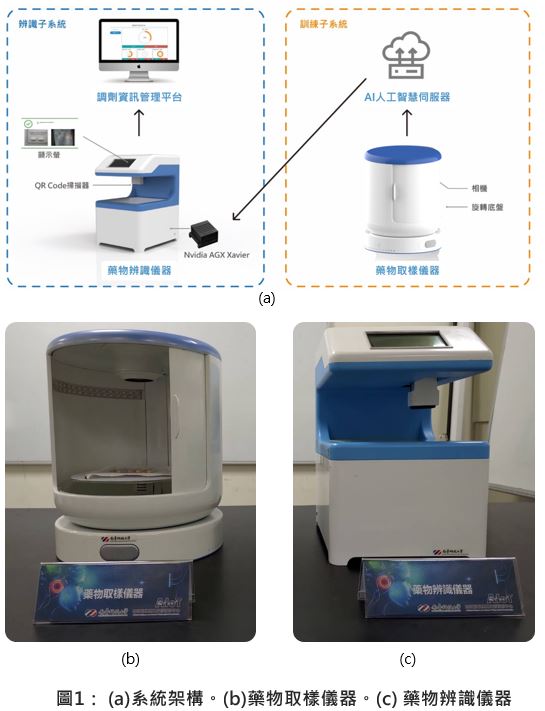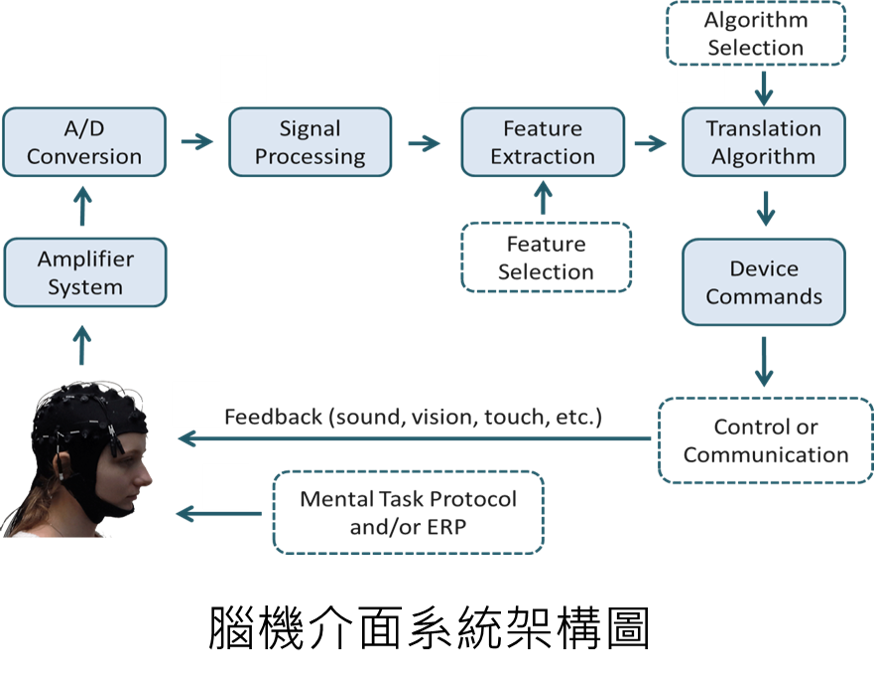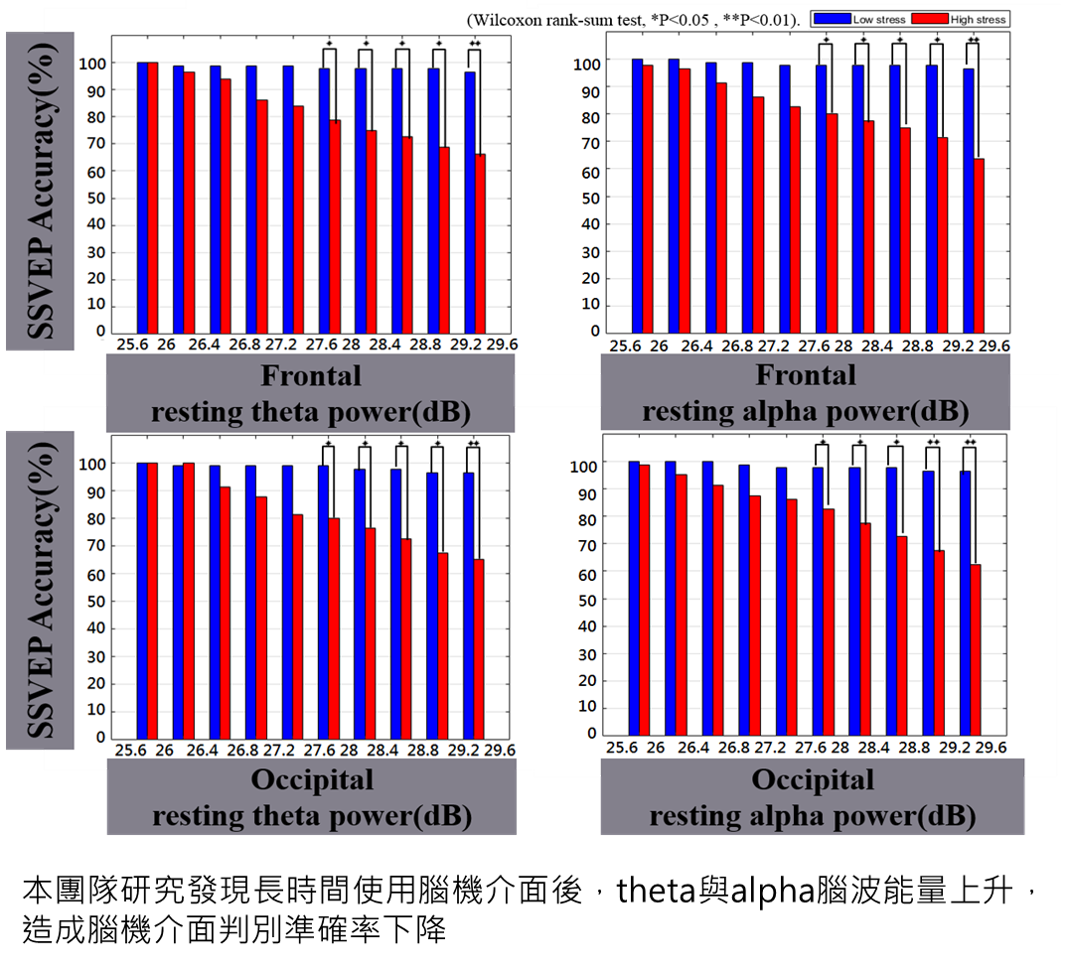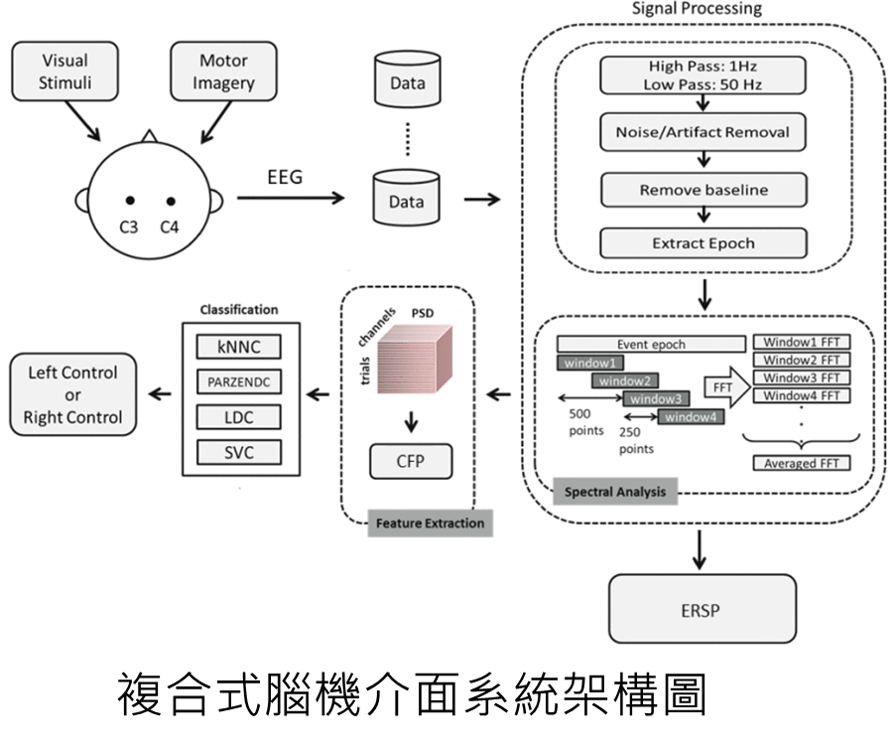| Technical Name | Adaptive Brain Computer Interface System | ||
|---|---|---|---|
| Project Operator | National Chiao Tung University | ||
| Project Host | 柯立偉 | ||
| Summary | Brain-computer interface (BCI) is a communication pathway that translates brain signals or human thoughts into a command for controlling a device or an application. In the last decade, despite the unprecedented technological advancements, BCI technologies are not in widespread use. In practical situations, BCIs might be used continuously for longer durations, during which the user’s physiological state changes (e.g. fatigue, stress, attention, motivation, engagement, etc.) could reduce the overall BCI performance. For practical applications, BCIs should be highly robust and be adaptive to human variability. |
||
| Scientific Breakthrough | The proposed system overcomes the issue that in practical situations, BCIs might be used continuously for longer durations, during which the user’s physiological state changes could reduce the overall BCI performance. Hence, our team discussed the physiological changes when a subject experiencing a long-term use of BCI system, and then discovered the physiological indicator that can be used in future BCI experiments to prevent “inappropriate status” of the user. A hybrid-BCI was developed with good performance. Our team also improved the EEG electrode and the algorithm to boost the system's signal quality and performance. And the affection of stress conditions was discussed during the BCI experiments. |
||
| Industrial Applicability | Physiological state monitoring could be integrated into scenarios like military training, learning in school, and driving fatigue detection. The system would alert or notify the user according to his/her physiological state, and thus modify the procedure of training or learning. While using BCI, the BCI models and the user’s state could be calibrated based on the analysis of the user’s resting and pre-stimulus EEG spectra, which could predict the BCI performance. Furthermore, the system has been applied to the rehabilitation of stroke patients along with mixed reality techniques, enhancing the effect of rehabilitation based on neural plasticity. The proposed system has strengthened the feasibility of physiological state recognition and BCI in real life. |
||
| Keyword | Brain Computer Interface (BCI) Electroencephalography (EEG) Steady State Visually Evoked Potentials (SSVEP) Rapid Serial Visual Presentation (RSVP) Canonical Correlation Analysis (CCA) Fatigue Stress Attention Adaptive BCI Models Dry EEG Electrodes | ||
- lwko@nctu.edu.tw
other people also saw







